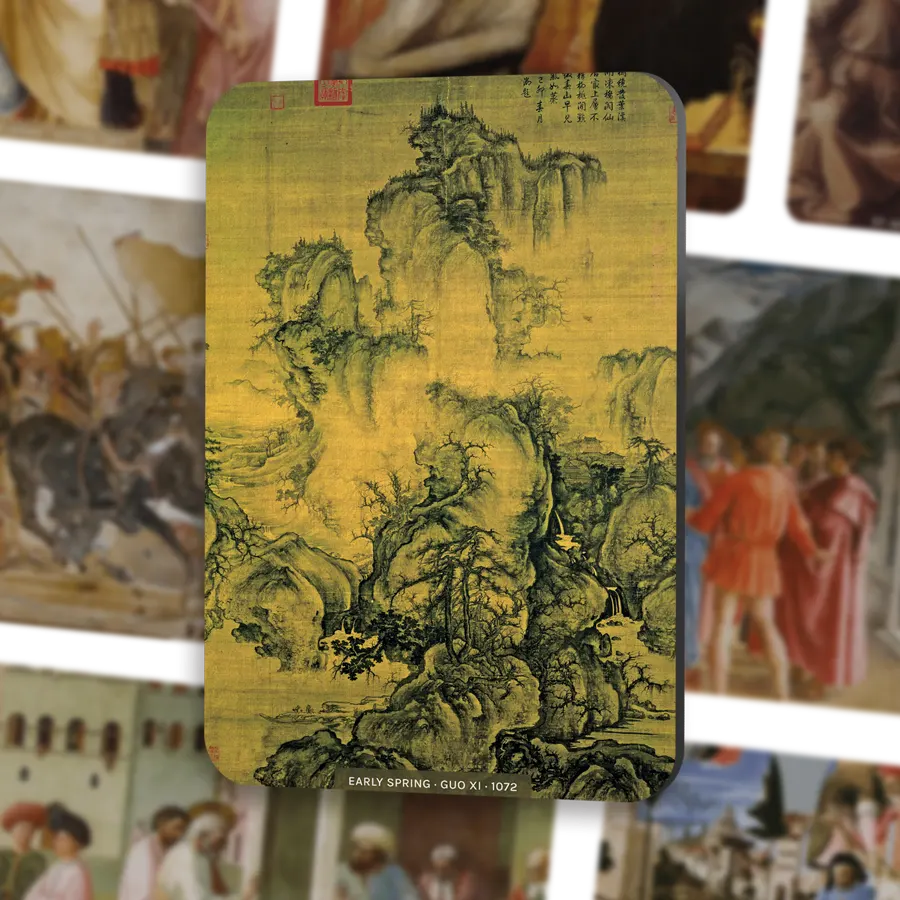Throughout history, there have been several important events that have had a profound impact on the world. These events shaped the course of human history and continue to influence the world we live in today. In this article, we will explore a variety of historical events that changed the world.
What are some historical events that changed the world?
The Declaration of Independence of the United States
One of the most significant events in human history is the Declaration of Independence of the United States. On July 4, 1776, the American colonies officially declared their independence from British rule. This event marked a turning point in world history, as it sparked the American Revolutionary War and ultimately led to the birth of a new nation.
The End of World War II
The end of World War II in 1945 is another historical event that changed the world. After years of devastating conflict, the surrender of Japan marked the end of the deadliest war in human history. World War II reshaped the geopolitical landscape, with the rise of the United States and the Soviet Union as superpowers and the beginning of the Cold War.
The Fall of the Berlin Wall
In 1989, the fall of the Berlin Wall marked the symbolic end of the Cold War and the reunification of Germany. This event not only symbolized the collapse of communism in Eastern Europe but also represented the triumph of democracy and freedom. It was a pivotal moment in modern European history and had far-reaching consequences.
How did communism impact the world?
The Rise of Vladimir Lenin
The rise of Vladimir Lenin and the Bolsheviks in Russia in 1917 had a profound impact on world history. Lenin led the Russian Revolution, overthrowing the Romanov dynasty and establishing the world's first communist state. This event laid the foundation for the spread of communism and inspired similar revolutions around the world.
The Chinese Communist Revolution led by Mao Zedong
In China, Mao Zedong led the Chinese Communist Revolution, which resulted in the establishment of the People's Republic of China in 1949. This event had significant implications for the global balance of power and set the stage for the Cold War between the communist bloc led by the Soviet Union and the capitalist bloc led by the United States.
The Cuban Revolution
In 1959, Fidel Castro and his revolutionaries overthrew the Cuban government, leading to the establishment of a communist regime in Cuba. This event marked a victory for communism in the Western Hemisphere and heightened tensions between the United States and the Soviet Union during the Cold War.
What events led to the formation of new nations?
The Algerian War of Independence
The Algerian War of Independence from 1954 to 1962 resulted in the formation of an independent Algeria. This event marked the end of French colonization in North Africa and inspired other anti-colonial movements across the globe.
The Austrian Anschluss
In 1938, Adolf Hitler annexed Austria into Nazi Germany, a process known as the Anschluss. This event not only extended Hitler's influence and control over Central Europe but also set the stage for the outbreak of World War II.
The Partition of India
In 1947, the British Empire partitioned India into two separate nations, India and Pakistan. This event led to widespread violence and displacement, resulting in the birth of two nations and the mass migration of millions of people.
Which events marked significant technological advancements?
The Atomic Bombing of Hiroshima and Nagasaki
The atomic bombing of Hiroshima and Nagasaki in August 1945 marked a turning point in human history. It was the first use of atomic weapons in warfare and effectively brought an end to World War II. The devastating impact of these bombings highlighted the destructive power of nuclear weapons and forever changed the dynamics of global warfare.
The Launch of Sputnik
In 1957, the Soviet Union launched Sputnik, the world's first artificial satellite. This event marked the beginning of the Space Age and sparked a race between the United States and the Soviet Union to explore space. It led to significant advancements in science, technology, and our understanding of the universe.
The Invention of the Internet
The invention of the internet in the late 20th century revolutionized communication and transformed the world. This event connected people from all over the globe, making information accessible at the click of a button. It has had a profound impact on every aspect of society, from business and education to politics and entertainment.
What were some major political milestones in history?
The Suffragette Movement
The suffragette movement in the early 20th century fought for women's right to vote. This event marked a significant victory for gender equality and laid the foundation for future social and political advancements for women around the world.
The Election of Nelson Mandela as South Africa's First Black President
In 1994, Nelson Mandela was elected as the first black president of South Africa in a historic democratic election. This event marked the end of apartheid and the beginning of a new era of reconciliation and equality in the country.
The Ratification of the 19th Amendment in the United States
In 1920, the 19th Amendment to the United States Constitution was ratified, granting women the right to vote. This event was a major milestone in the women's suffrage movement and paved the way for greater gender equality in American society.
Learn more about the historical events through Large SCIENCEWALL + 120 Science Magnets.
Q: What is the significance of historical events in human history?
A: Recent historical events have shaped the course of humanity, influencing politics, society, and culture. These events have brought about monumental changes that have reverberated throughout the world.
Q: Which event became the first major pandemic of the 21st century?
A: The COVID-19 pandemic, which began in late 2019, became the first major pandemic of the 21st century. It had a significant global impact, affecting millions of people and changing the way we live and interact.
Q: When did the American troops announce their departure from Afghanistan?
A: The American troops announced their departure from Afghanistan on August 31, 2021. This marked the end of a two-decade-long war and had implications for the region's stability.
Q: What was the nationalist movement that emerged in Western Europe during the 19th and 20th centuries?
A: The nationalist movement that emerged in Western Europe during the 19th and 20th centuries sought to promote the interests and identity of specific nations or regions. It played a significant role in the shaping of modern Europe.
Q: Which city served as the capital of the Soviet Union?
A: Moscow served as the capital of the Soviet Union, exerting both political and cultural influence throughout the country and beyond.
Q: Who was the first African American to be elected President of the United States?
A: Barack Obama became the first African American to be elected President of the United States in November 2008. His election marked a significant milestone in American history.
Q: What was the anti-war movement during the Vietnam War?
A: The anti-war movement during the Vietnam War was a widespread protest against the United States' involvement in the war. It advocated for peace and an end to the conflict.
Q: What was the massacre that occurred on October 1929, leading to a severe economic downturn?
A: The massacre that occurred on October 1929 refers to the stock market crash, also known as the Wall Street Crash. This event triggered the Great Depression, a period of extreme economic hardship worldwide.
Q: When did the armistice signaling the end of World War I take effect?
A: The armistice signaling the end of World War I took effect on November 11, 1918. This date is now commemorated as Armistice Day or Remembrance Day in many countries.
Q: Which city is home to the headquarters of the World Trade Organization?
A: The headquarters of the World Trade Organization is located in Geneva, Switzerland. It serves as a forum for international trade negotiations and the resolution of trade disputes.




